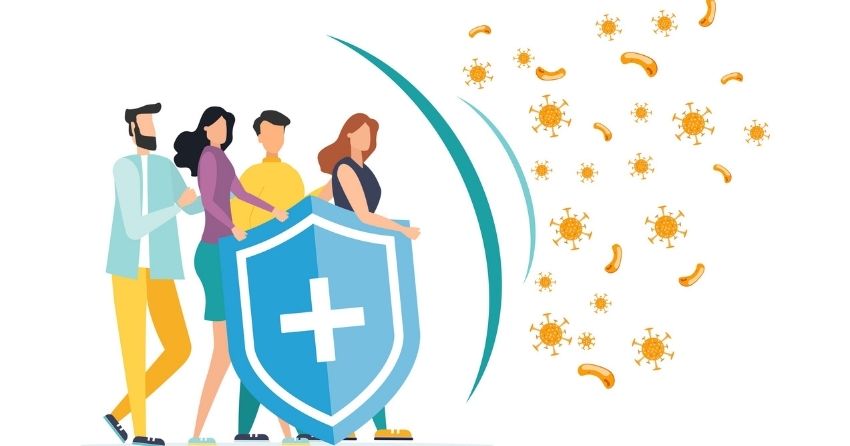Mighty Morphing Macrophages: NMN Replenishment Effectively Supports Immune Cell Responses

They've got a power and a force that you've never seen before.
They've got the ability to morph and to even up the score.
No one can ever take them down.
The power lies on their siiiide.
Go Go Macrophages.
Well, that’s not precisely the intro to the live-action superhero television series Power Rangers. Still, it does a pretty good job of describing new research on nicotinamide mononucleotide (NMN) aiding healthy responses of immune cells called macrophages. New research, led by researchers at Tsinghua University in Beijing and Shenzhen Hope Life Biotechnology Co., LTD, identified the metabolic characteristics of macrophages “morphing” into an active state and revealed that NMN replenishment is an efficient approach for controlling macrophage activation. The study’s findings, published in the journal Frontiers in Molecular Biosciences, add to the growing data supporting the positive impact of NMN on the immune system.
Searching for new immune system stimulating compounds
Inflammation is an adaptive process when the human body is constantly exposed to harmful stimuli. Macrophages play an important role in the initiation, maintenance, and resolution of inflammation by producing various growth factors and inflammatory compounds called cytokines. Activated macrophages promote inflammation by secreting a menagerie of cytokines like prostaglandins — a type of lipid that, beyond forming fat, have other functions.
One such prostaglandin, PGE2, mediates the inflammatory response and is synthesized by cyclooxygenases (COX-1 and COX-2). These enzymes are the targets to promote a healthy immune system.

NAD+ and the immune system
Nicotinamide adenine dinucleotide (NAD+) is one of the most important molecules in cells by participating in hundreds of reactions as a coenzyme and mediating multiple signaling pathways. Recently, it has been reported that excessive oxidative stress during aging and chronic inflammation led to NAD+ depletion.
But these levels can be replenished. NAD+ is generated through several pathways, one of which feeds off nicotinamide (NAM), nicotinamide riboside (NR), and nicotinamide mononucleotide (NMN). There is plenty of research documenting that the administration of these NAD+ precursors increases the cellular levels of NAD+. In addition, inflammation of adipose tissue, the primary component of fat, can be suppressed by the long-term administration of NMN to maintain a healthy immune system.
An activated immune system affects NAD+ levels.
In the present work, Jing Liu and colleagues determined whether NMN supplementation can modify the responses of specific immune cells to support immunity through increasing cellular NAD+ levels. To do so, the Chinese researchers first profiled the metabolic compounds in macrophages activated with an inflammatory compound called lipopolysaccharide (LPS). They found that LPS treatment affected macrophages by compromising fatty acid β-oxidation — a multistep process by which various tissues break down fatty acids to produce energy.
The disrupted fatty acid β-oxidation of these immune cells was also validated at the level of proteins, showing that carnitine O-palmitoyltransferase 1 (CPT1A) was down-regulated in LPS-treated macrophages. CPT1 plays a critical role in the fatty acid oxidation process. This enzyme that plays a role in fat and oil formation has been implicated in regulating mitochondrial function and redox imbalance, which can cause oxidation of proteins, DNA damage, and interference of reactive oxygen species (ROS) with cell signaling pathways.
NADPH, a related compound to NAD+ that participates in many essential functions like fatty acid synthesis, is vital in macrophage activation for ROS production. Consequently, the increase of NADPH may correlate to a decrease in cellular NAD+ levels. Noticeably, the NADPH levels were increased by 5-fold in LPS-treated cells compared with untreated cells in their metabolomics data. Increasing NADPH was crucial for macrophage activation for ROS generation, in which cell levels of nitric oxide synthases (NOS) — enzymes that generate nitric oxide, which has an anti-inflammatory effect — were upregulated in activated macrophages in proteomics results. Indeed, the cellular NAD+ level was decreased in LPS-treated cells, suggesting that less NAD+ was available for Sirtuins — proteins associated with healthspan and longevity that use NAD+ to function.
NMN activates macrophages to support immune function
Liu and colleagues then tested if supplementation of NAD+ precursors can increase the NAD+ level and enhance Sirtuin activities. The Chinese researchers found that NMN replenishment increased the cellular NAD+ level and antagonized the expression of cytokines in LPS-treated macrophages. A recent study by the same researchers revealed that NMN supplementation decreases PGE2 production via stabilizing 15-PGDH from oxidative degradation that alleviated liver fibrosis. PGE2 is known as a lipid mediator to exacerbate inflammation by inducing IL-6 production.
However, in this study, NMN treatment in macrophages didn’t change the cellular 15-PGDH levels. Instead, this data shows that COX-2 expression was decreased in LPS/NMN co-treated cells compared to LPS-treated cells, leading to decreased PGE2 production. Liu and colleagues further demonstrated that NMN relieved LPS-induced inflammation via the COX-2-PGE2 axis in COX-2 knockdown or overexpressing cells.
Then, the Chinese researchers demonstrated that other NAD precursors NAM and NR also downregulated COX-2 expression and PGE2 production, suggesting that the increase of NAD+ content was correlated with the decrease of COX-2 expression. The molecular mechanisms underlying NMN-mediated COX-2 downregulation are under further exploration.

Are NAD+ precursors the new immune system boosters?
In conclusion, Liu and colleagues showed that altered NAD+ metabolism was a characteristic in activated macrophages and that NMN supplementation suppressed pro-inflammatory cytokine production in LPS-induced inflammation. They revealed that the NMN supplementation decreased COX-2 expression and inhibited PGE2 production. These results suggest NMN replenishment may be a practical yet effective approach for supporting healthy immune responses.
References:
Liu J, Zong Z, Zhang W, et al. Nicotinamide Mononucleotide Alleviates LPS-Induced Inflammation and Oxidative Stress via Decreasing COX-2 Expression in Macrophages. Front Mol Biosci. 2021;8:702107. Published 2021 Jul 6. doi:10.3389/fmolb.2021.702107





